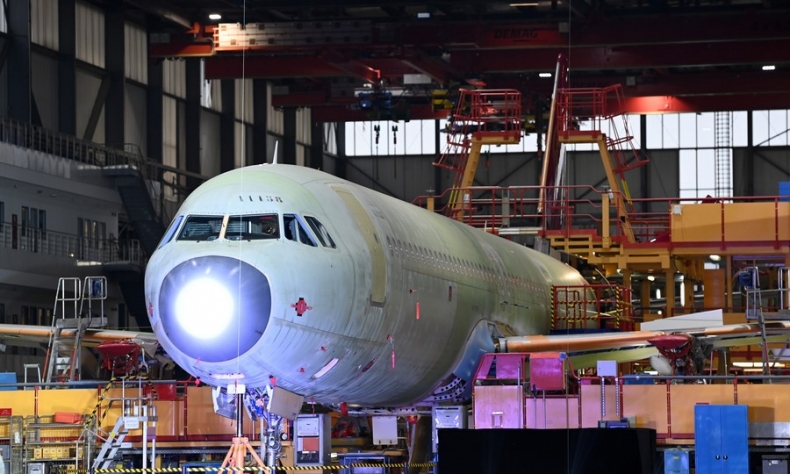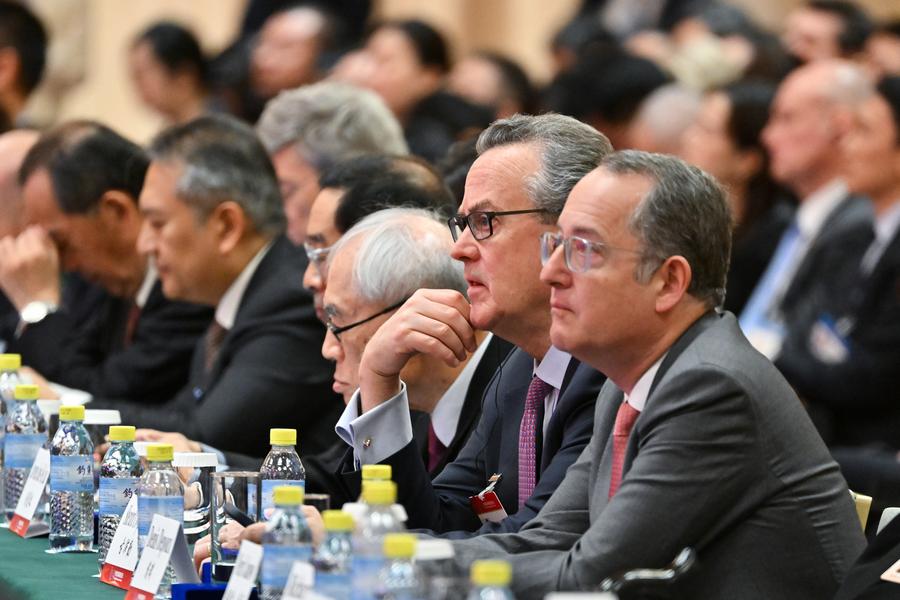China’s New Economic Drivers Are Opportunities to Europe

There are a lot of opportunities for European companies in these quite new industries, as well as in more traditional industries such as automotive, energy, hospitality, and healthcare.
Editor’s Note: This year marks the 50th anniversary of the China-EU diplomatic ties. What are the key achievements of China-EU economic relations over the past 50 years? What does China’s high-level opening up mean for European companies? And how will this relationship develop in the future? In an interview with China Focus, Denis Depoux, Global Managing Director at Roland Berger, shared his insights.
China Focus: In your view, what are the most significant milestones in EU-China economic collaboration over the past 50 years?
Denis Depoux: China became the factory of Europe after its accession to the WTO in 2001. And that has characterized the next probably 15 years. Many European companies entered the Chinese market at a very early stage during China’s reform and opening up. We are now in a different phase where obviously technological and product leadership is no longer exclusive to Europe or the United States. Many Chinese companies and the Chinese economy itself are emerging as key leaders in these areas.
China is an important participant in both European and global supply chains. China is a destination for European products. For example, China is Germany’s largest trading partner and, depending on the year, often is the biggest trade partner of the EU as a whole. Beyond trade, China has also become a key source of technology and advanced sophisticated products for the EU.

China Focus: How has the business environment for European companies in China improved over past years? How do you evaluate China’s efforts to open its doors wider to the world?
Denis Depoux: I think generally there has been a quiet linear improvement in market conditions. If you had asked me this question 10 years ago, intellectual property (IP) protection was a top concern for European businesses, along with a number of markets that were officially restricted in the negative list. My company, Roland Berger, has collaborated with the European Union Chamber of Commerce in China on the annual Business Confidence Survey for the past 15 years. And 10 years ago, the questions were very different from what they are today.
Now, I think the key question is the status quo of the Chinese economy and how much growth can be expected from the Chinese economy. While IP protection remains important, it is not that important because China has progressively improved its IP protection rules and strengthened its management. Market access for foreign and European companies has also expanded, though some restrictions remain. The bigger issue today is no longer just access to the market but the competition with Chinese companies.
China Focus: What are your thoughts on Chinese companies building factories in Europe?
Denis Depoux: The EU is an attractive and affluent market, comprising 27 countries with a single currency for many of them. It’s a market with unified rules for trade and investment. And that offers stability and consistency for businesses. The EU is not a nation but an institution with clear, transparent, and rational rules that all market participants must follow.
While it is normal to have some friction, particularly in a changing era of globalization, Europe remains open to Chinese investment. However, the traditional export-only model for many Chinese companies is becoming less viable. If Chinese companies want to be successful in Europe, they need to be close to their clients, provide strong customer service, manage their distribution effectively, and understand the cultural nuances that shape consumer preferences across different European countries. These factors are especially important in product design.
In many ways, what is happening to Chinese companies now is the same as what happened to European companies coming to China 20 years ago. To thrive, they had to adapt, localizing their branding, standards, and operations to align with the Chinese market. The same principle applies to Chinese businesses in Europe. Even major European and American brands in sectors like sportswear, apparel, and luxury have had to tailor their offerings to local customers.

China Focus: What new opportunities will China’s intensified focus on domestic demand create for European countries?
Denis Depoux: There are many emerging sectors, and the cultural industry is one of them. For example, in my country, France, we have the renowned theme park operator, Puy du Fou, which launched its innovative and immersive show named SAGA City of Light in Shanghai. I highly recommend it to everyone, as it offers more than just a show. It’s an interactive experience where audiences engage directly with the performers. This is an example of the new cultural trends.
Another example is that animated films have become an unexpected source of revenue. This reflects the nature of the Chinese economy—continuously unleashing and discovering new sources of income. There are a lot of opportunities for European companies in these quite new industries, as well as in more traditional industries such as automotive, energy, hospitality, and healthcare, to name just a few.
China Focus: Looking ahead, what do you expect for the future of EU-China relations?
Denis Depoux: I think it’s quite clear that U.S. policymaking has shown considerable variability under the new administration. This is a wake-up call for Europe. So Europe has to act together and recognize the need for a more independent and strategic approach. In this context, China appears to be a better beacon of stability, at least in the economic fields. I’m quite positive and optimistic about the evolution of the EU-China relationship and the resolution of trade and investment disputes. I could even foresee Europe and China reviving the Comprehensive Agreement on Investment (CAI), which was frozen by the European parliament in 2021.
 Facebook
Facebook
 Twitter
Twitter
 Linkedin
Linkedin
 Google +
Google +










